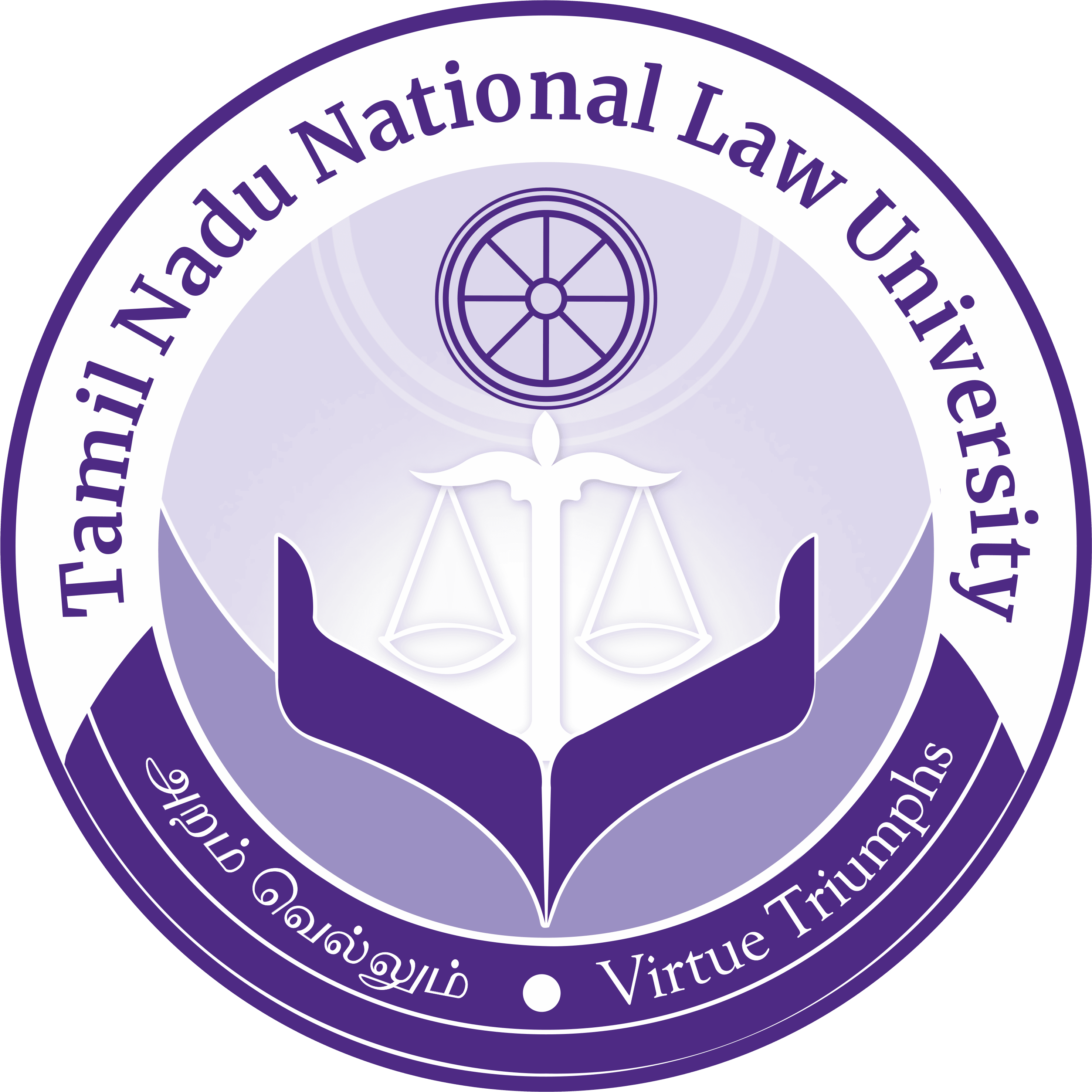

Resource Person: Hon’ble Mr. Justice S.S. Sundar, The Judge, Madras High Court
No. of Participants: 60
Level: Intra University
The Suthanthira Thirunaal Amudha Peruvizha (STAP) Programme was organized for the Land Laws of Tamil Nadu subject offered by the TNNLU.
The event was started sharply at 5.30 in the evening with the presence of 60 participants. The Hon’ble Vice Chancellor of Tamil Nadu National Law University, Welcomed the gathering. Mr. A. Nirmal Singh Heera, Assistant Professor (Law) introduced the resource person. After this formal introduction, Lordship Hon’ble Mr. Justice S.S. Sundar, The Judge, Madras High Court commenced his speech by giving a small introduction to the land tenure in the Madras presidency. Lordship as an opening speech said that Land tenure actually means or it understood generally the types of land holdings. Land tenure that was existing at the time Britishers, Mughal emperor and over the period of time was discussed during this event.
Lordship discussed several legislation during his lecture. Lordship said that during the Mughal Empire there was no direct invasion either by the west or by the Mughal Empire as far as the Tamil Nadu State is concerned. Hindu king during their period has recognized the proprietorship or ownership over the land. Hindu King never claimed ownership in land. King surrendered the land to Empire with an undertaking to pay the rent which was collected by agents also. Those agents were called as land holders or zamindaris. The same pattern was also followed by the British government when they came to India. Whereas, the British government recognized the holding of land only by way of possession. For the cultivation of the land or for irrigation, the king was expected to do so many things, in return, our Hindu kings were collecting a tribute from each pastures of land. This is called Gist in those days. Kiroj a fixed land attached to every land during the Mughal Period. Village headman was the control of the entire village and he will be assisted by Karna and he will maintain the account.
Lordship also spoke about Melwaram and Kudiwaram. Land were assigned by some of the officers of the Mughal emperor or by the Kings some time (Melwaram). This land is called as Joggir is a land. Lordship was also discussed about Miracy tenure, Ryotwari system. Lordship was also spoke about Permanent Settlement System 1822, The Tamil Nadu Estate Abolition Act. Land revenue was the major source of income in those days. The lecture includes Inam lands, Tamilk Nadu Estate Land Act, 1908. Lordship emphasized that after independence, three important legislations were passed. Lordship also spoke about Revenue Recovery Act. He has highlighted Section 20, 20-A of the Act. Tamil Nadu City Tenant Protection Act, 1921/22 and its subsequent amendment in 1975, Survey and Boundaries Act (Section 18). Tamil Nadu Inam Estates Abolition and Conversion into Ryotwari Act, Tamil Nadu Minor Inam Estates Abolition and Conversion into Ryotwari Act, 1963, Tamil Nadu Estate Land Reduction of Rent Act, 1947 are also covered during the lecture by lordship. The jurisdiction of the court to decide the question of title, Ramalingamadam case has also been highlighted during the talk. Lordship has also spoke about the various types of land and its cultivatable nature. Tamil Nadu Cultivating Tenant Protection Act, Tamil Nadu (Building Lease and Rent) Control Act, Tamil Nadu Land Improvement Scheme Act, 1959 and several other legislations were also highlighted by our Lordship during his lecture.
After the successful session, the floor was open for questions and answers. Lordship answered all the questions raised by the participants patiently.
Lastly, the event came to an about 7.45 pm with the formal vote of thanks proposed by Ms. K.R. Leela, Registrar, Tamil Nadu National Law University, Tiruchirappalli.